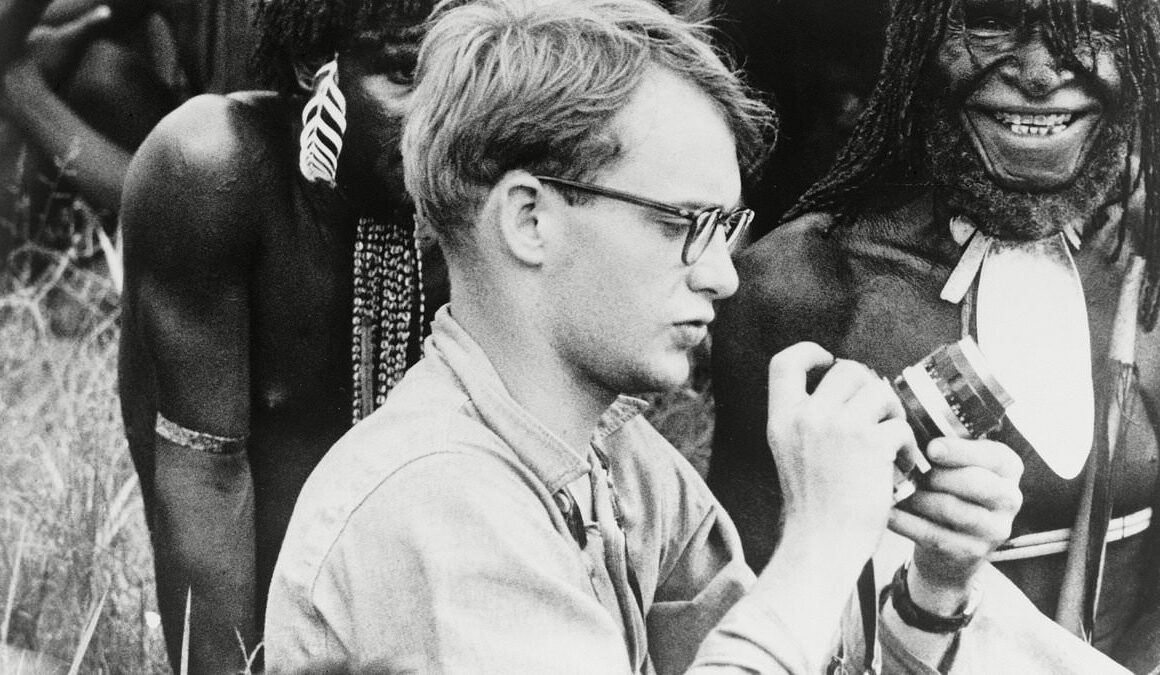QUESTION: What became of Michael Rockefeller?
Michael Rockefeller (born 1938) was a member of one of the world’s wealthiest and most powerful families. He was the son of New York Governor — and later Vice President — Nelson Rockefeller.
After university, Michael was part of an expedition with Harvard’s Peabody Museum of Archaeology and Ethnology, studying the Dani tribe in Dutch New Guinea. He soon returned to New Guinea to spend time with the Asmat tribe and collect their unique wooden art.
On November 17, 1961, Michael’s boat overturned near the island’s southern coast. After staying with the boat for some time, Michael attempted to swim to shore for help. He was never seen again.
Despite extensive search efforts, no conclusive evidence of his fate has ever been found. Various theories have emerged over the years, ranging from drowning to being attacked by a shark or being killed, and possibly eaten, by local tribes.
In 2014, journalist Carl Hoffman published a book suggesting that Michael was killed by the Asmat, supported by some tribal accounts. However, definitive proof of his fate remains elusive, and his disappearance continues to be a subject of speculation and intrigue.
James Collins, Sheffield

Michael Rockefeller (born 1938) was a member of one of the world’s wealthiest and most powerful families

After university, Michael was part of an expedition with Harvard’s Peabody Museum of Archaeology and Ethnology, studying the Dani tribe in Dutch New Guinea
QUESTION: Black Sabbath were once The Polka Tulk Blues Band. What other famous groups started out with terrible names?
A rock band’s name should be memorable for good reasons rather than bad. It is also useful if the name is short; this is popular with fans and DJs alike, and makes it easier to produce a focused logo, e.g. the lightning-bolt letters ‘S’ in Kiss. This helps with merchandising.
The name adopted by Creedence Clearwater Revival is much more sophisticated than their original name, The Golliwogs, which also would probably have caused them to be cancelled by now.
Early names of Pink Floyd included Meggadeaths, the Screaming Abdabs and Leonard’s Lodgers (named after their landlord). Coincidentally, the name Megadeth was used by a 1980s American metal band, though without conscious reference to Pink Floyd’s old name.
Mother McCree’s Uptown Jug Champions does not now sound like a hip name (if it ever did). This band was the main ancestor of the much cooler Grateful Dead, whose name was reinforced by their skeleton- and-rose motif (also useful in merchandising).

Early names of Pink Floyd (pictured) included Meggadeaths, the Screaming Abdabs and Leonard’s Lodgers (named after their landlord)

As for the infamous name Polka Tulk, the origin is disputed but the popular story is that it was a brand of talcum powder used by Ozzy Osbourne’s (pictured) mother
Two members of The Mamas & The Papas were previously members of a group called The Mugwumps. As this name originated from an Algonquin word meaning ‘war leader’, it would have been inappropriate for the new group’s message of peace and love.
One of the most effective group names of all time is ABBA: short, palindromic and an acronym of the members’ names. (Fortunately, few people outside Sweden knew that Abba was also the name of a fish-canning company.) It is hard now to believe that Bjorn and Benny had previously been members of, respectively, the Hootenanny Singers and the Hep Stars.
As for the infamous name Polka Tulk, the origin is disputed but the popular story is that it was a brand of talcum powder used by Ozzy Osbourne’s mother. This somewhat lacks the heavy, doomy connotations of the name Black Sabbath.
Bob Bell, Croydon, Surrey
QUESTION: What is the origin of the word ‘malarkey’?
This is something of a mystery. According to the Oxford English Dictionary, malarkey is an informal noun meaning ‘meaningless talk; nonsense’. It says the word is of ‘unknown origin’.
Word historian Peter Tamony found an early citation which might give a clue to its origins. The Irish-American cartoonist Thomas Aloysius Dorgan helped to circulate a number of words in the American lexicon, among them malarkey, hard-boiled and hot dog.

According to the Oxford English Dictionary, malarkey is an informal noun meaning ‘meaningless talk; nonsense’ (file picture)
Dorgan began using the word in the early 1920s, though the spelling wasn’t yet settled. ‘Milarkey’ as a fictitious place name features in a cartoon of his from March 9, 1922.
Two years later, on April 2, 1924, the word ‘Malachy’ appears in another cartoon, this time with its nonsense meaning (‘Malachy — You said it — I wouldn’t trust a lawyer no further than I could throw a case of Scotch’). It’s possible that he coined the word or adapted it from an Irish surname.
Etymologist William Sayers has suggested that Irish Gaelic meallaireacht meaning ‘deception, allurement, amusement’, and heard to English-speaking ears as ‘malaracht’, could be the source, but this is merely conjecture.
Angela Grier, Henley-on-Thames, Oxon







